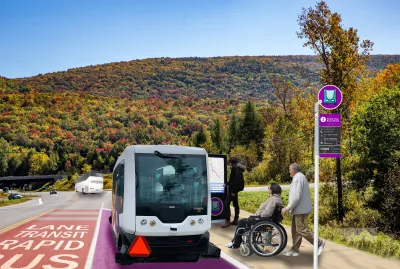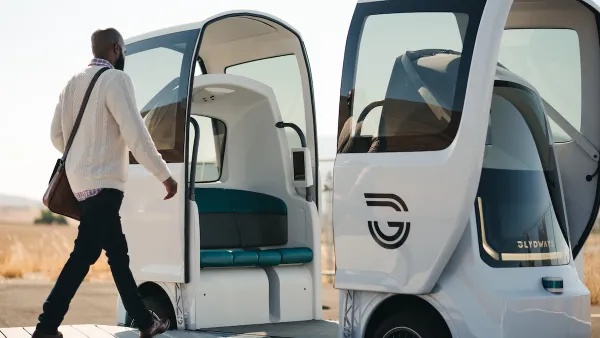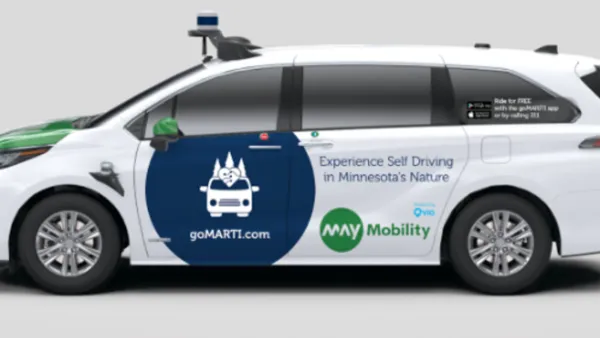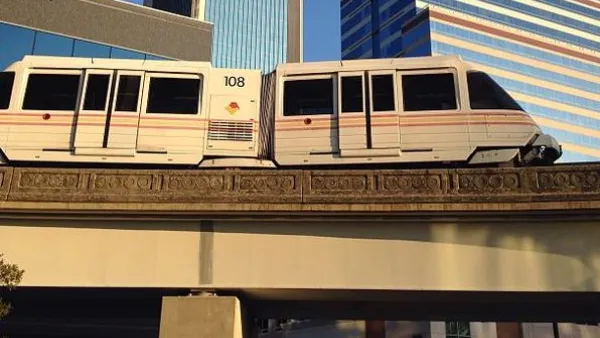Two autonomous shuttle companies closed last week, but one industry observer sees reasons for optimism for the long-term viability of the still-speculative market.

Brad Templeton provides commentary on the demise of two autonomous shuttle companies in the space of a week: Optimus Ride, an autonomous shuttle company in Boston, and Local Motors, maker of the Olli shuttle.
In examining the two closures for lessons about the viability of the autonomous vehicle industry, Templeton notes the numerous players in the shuttle market, "including May Mobility, early pioneer Navya, EasyMile, 2getThere, Transdev, Auro/Ridecell and many other players in China." The size of the market is enabled by smaller barriers to entry compared to the personal car industry, according to Templeton. But those smaller barriers to entry also imply smaller ambitions:
The robotaxi vision is world-changing because it allows car replacement, which means a big change in how our cities work. Shuttles are much less ambitious. Mostly, they make transit a bit cheaper, which is far from world-changing. It’s a pretty meager thing for self-drive technology to be doing.
And autonomous shuttles have yet to achieve even those "meager" advancements—shuttles still aren't very cheap because of the safety driver. Still, Templeton sees opportunities from the current obstacles, including the ability to operate frequent, 24/7 transit without drivers (which are in short supply) and more efficient mode switching.
More details of Templeton's optimism are available at the source article below.
FULL STORY: Two Self-Driving Shuttle Companies Fail In One Week. What Does It Bode?

National Parks Layoffs Will Cause Communities to Lose Billions
Thousands of essential park workers were laid off this week, just before the busy spring break season.

Retro-silient?: America’s First “Eco-burb,” The Woodlands Turns 50
A master-planned community north of Houston offers lessons on green infrastructure and resilient design, but falls short of its founder’s lofty affordability and walkability goals.

Delivering for America Plan Will Downgrade Mail Service in at Least 49.5 Percent of Zip Codes
Republican and Democrat lawmakers criticize the plan for its disproportionate negative impact on rural communities.

Test News Post 1
This is a summary

Test News Headline 46
Test for the image on the front page.

Balancing Bombs and Butterflies: How the National Guard Protects a Rare Species
The National Guard at Fort Indiantown Gap uses GIS technology and land management strategies to balance military training with conservation efforts, ensuring the survival of the rare eastern regal fritillary butterfly.
Urban Design for Planners 1: Software Tools
This six-course series explores essential urban design concepts using open source software and equips planners with the tools they need to participate fully in the urban design process.
Planning for Universal Design
Learn the tools for implementing Universal Design in planning regulations.
EMC Planning Group, Inc.
Planetizen
Planetizen
Mpact (formerly Rail~Volution)
Great Falls Development Authority, Inc.
HUDs Office of Policy Development and Research
NYU Wagner Graduate School of Public Service





























